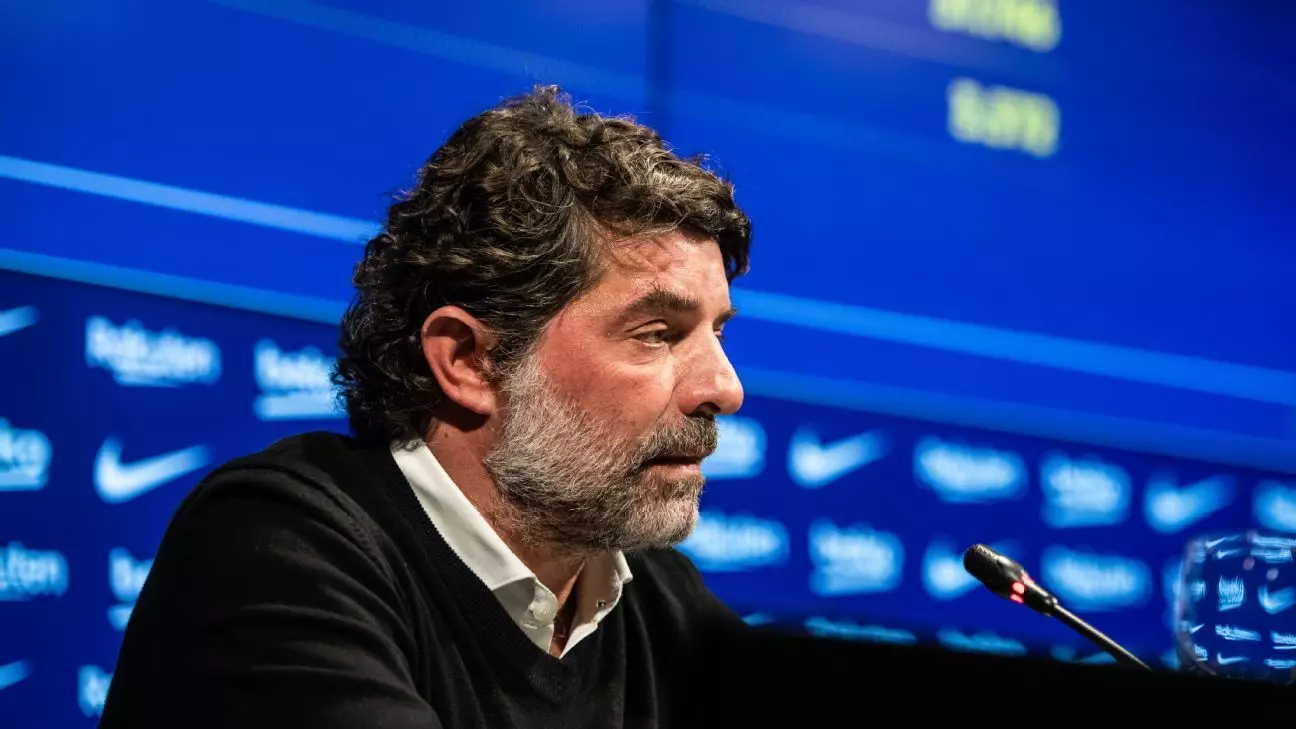The recent resignation of Juli Guiu from his position as vice president of FC Barcelona has sent ripples through the football community, revealing the complex dynamics within the club’s leadership. Official statements confirmed Guiu’s departure, attributing it to personal reasons; however, sources indicate that underlying issues related to a significant new agreement with Nike may have played a pivotal role in this decision.
Guiu’s resignation coincides with Barcelona’s announcement of a new multi-year sponsorship agreement with Nike, valued at over €100 million annually. While such a contract may appear beneficial on the surface, reports suggest that Guiu voiced concerns regarding specific terms of the deal. Disagreements over management and commission—particularly regarding agent Darren Dein, who facilitated the negotiations—appear to have sparked discord. This incident raises questions about the decision-making processes at the club and the extent to which individual voices are heard within the corporate structure.
Serving since 2021, Guiu was instrumental in forging partnerships that have crucially supported Barcelona’s financial landscape, including deals with major sponsors like Spotify. His exit, therefore, not only exemplifies a personal decision but also underscores the potential instability within the club’s upper management. As one of four vice presidents responsible for marketing, his strategic insight was expected to guide ventures at a time when the club requires steady leadership in navigating financial pressures.
Adding to the tumult, Barcelona is currently facing additional scrutiny over various administrative challenges. Recently, Spain’s sports ministry granted temporary player registrations for Dani Olmo and Pau Víctor, contradicting a previous ruling by LaLiga and the Spanish Football Federation (RFEF). This situation has further complicated the already tangled web of compliance with Financial Fair Play regulations, heightening tensions with rival clubs shocked by the ministry’s decision. While Guiu’s departure is said to be unrelated to this development, it nonetheless exemplifies the challenges that the current administration faces.
The ramifications of Guiu’s resignation extend beyond individual leadership to affect the broader strategic direction of Barcelona. The club must recover from this change while simultaneously addressing ongoing financial and competitive challenges. The absence of a seasoned figure like Guiu—someone who could navigate complex sponsorship deals and maintain fruitful relationships with partners—could signal a period of uncertainty for the club.
Juli Guiu’s resignation may seem like a singular event, yet it illuminates deeper issues within FC Barcelona’s governance and operational integrity. As the club moves forward, it will be vital to reestablish stability and focus on building a cohesive executive team capable of not only capitalizing on lucrative sponsorships but also navigating regulatory hurdles. With the eyes of the footballing world watching closely, the path ahead will undoubtedly be scrutinized, particularly given Barcelona’s storied history and ambitions on the pitch.

